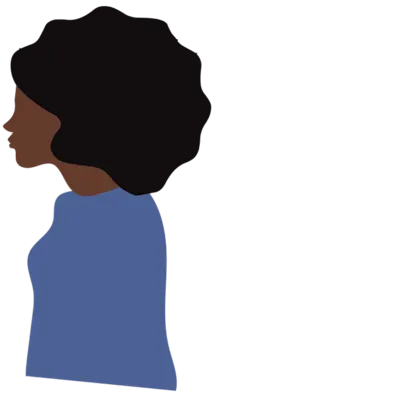Modern State of Fertility 2021 The New Normal: Timelines for Marriage & Kids
While the past year has forever changed how people feel about life planning in general, ramped-up vaccine rollout is renewing hope and optimism. And, for many couples, heightened stressors have actually brought them closer together. After a year of hardship, this is the news we’ve been waiting for.Our aim with this trend report is to put data behind what’s become the new normal: deprioritizing long-held traditions and having kids whenever we want to (if we choose to at all). Now it's time to put that rhyme officially to rest.
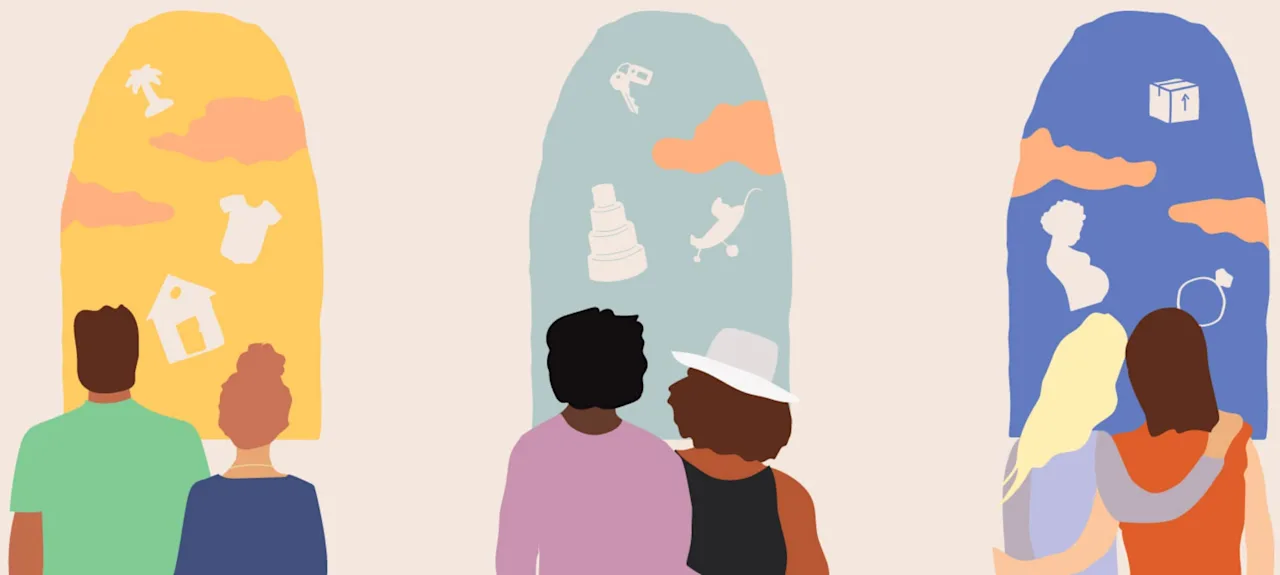
Questions we set out to answer
“Then comes baby”? Not exactly.
1 out of 5 people planning a wedding say they’re open to having kids before tying the knot — and 2 out of 5 say that marriage before kids isn’t important to them as long as they have the right partner. This point of view is gaining momentum: 70% said they don’t think it’s taboo to become a parent outside of marriage (compared to only 27% who said they felt this way growing up).

FROM THE MODERN COMMUNITY
"We are now on our third wedding date for May 7, 2021. We will be moving forward no matter what. Since December, we have been casually trying to conceive. I do not care if I am pregnant at my wedding or if we were to get pregnant before being legally married. We have been together nearly nine years and are ready to start our lives and family together."
"We had a wedding planned in 2020 that was postponed. Shortly after, we had an honest discussion about when we were ready to have kids, which was previously discussed at a higher level. Now, even though our wedding date is up in the air, we have a date to start conceiving. A lot of that is due to Modern Fertility’s test, which jump-started our conversation."
Are you considering trying to conceive and/or pursuing parenthood before marriage?

There’s more openness to “single parent by choice” as a parenting path.
Just over a quarter agreed with the statement "I don't feel like I need a partner to become a parent."

COVID-19 changed almost everyone's wedding plans — and nearly half of people's timelines for kids.
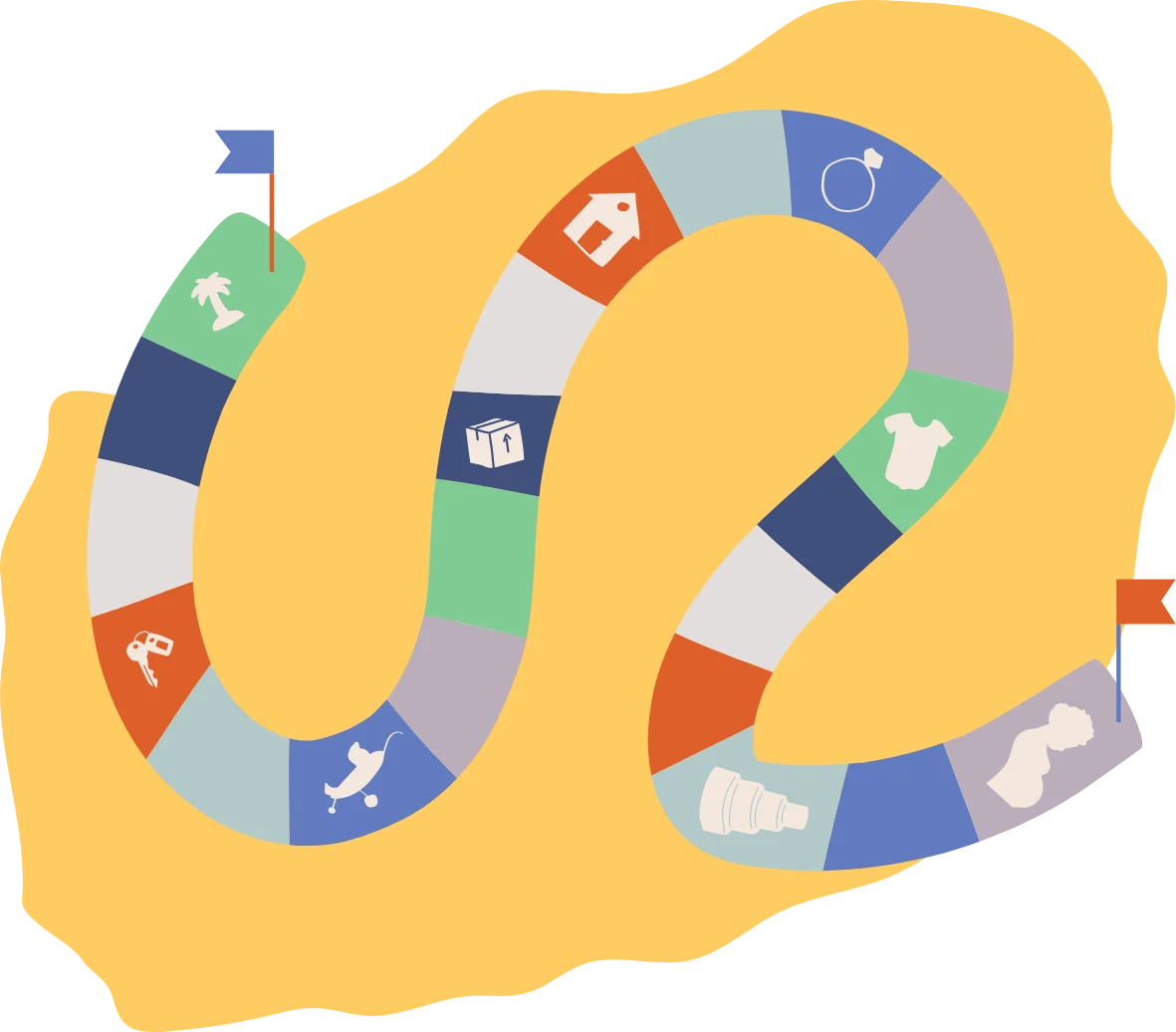
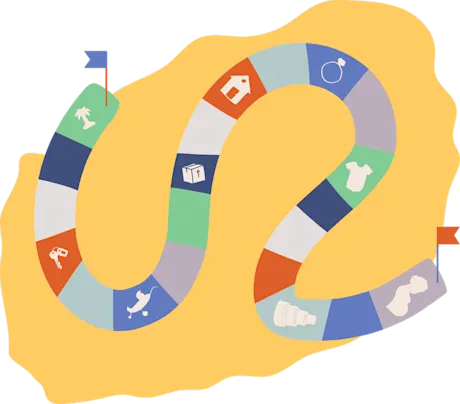
It didn't surprise us that 93% of people we surveyed changed their wedding plans due to COVID-19, with most either opting for "microweddings" (or "minimonies") in a COVID safe environment or rescheduling their weddings. But 46% reported that the pandemic forced them to change their plans for becoming parents — with 31% delaying kids and 15% accelerating their timelines.
How wedding plans shifted after March 2020

Most popular months for 2021 weddings

FROM THE MODERN COMMUNITY
"We ended up postponing our large reception and getting married at a different venue with just our small bridal party and immediate family. We virtually streamed the ceremony for our close friends that were not invited to the intimate ceremony. At first, I was upset... but at the end of the day, it was a perfect day for us. I definitely don't regret the changes that we had to make due to COVID. I am also excited for our reception this summer with the friends and family that did not attend the ceremony."
Almost half (46%) reported that the pandemic forced them to change their plans for becoming parents.
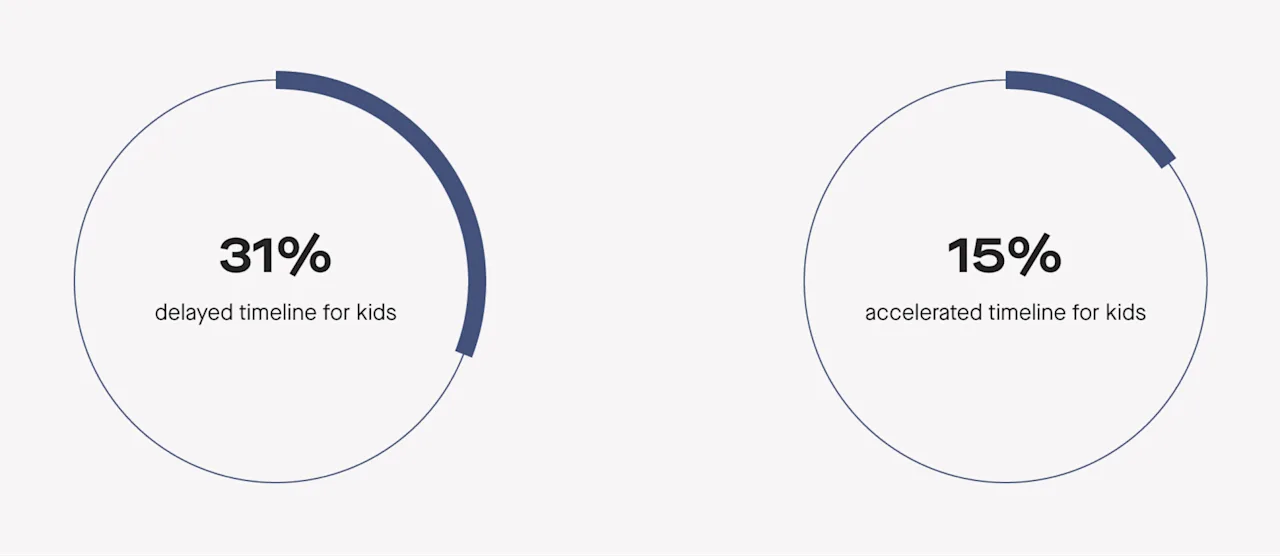
How LGBTQ+ couples are thinking about timelines
"I wanted to be legally married before having kids so we did get legally married in a kind of small elopement in 2020. My partner and I are same-sex, so it's a lot safer legally to have children when married."
"My wife and I got married during the pandemic. As lesbians, we feel strongly about marriage protecting our relationship and our future children. The institution of marriage allows us access to each other in hospitals and other things. It also protects our future children if something were to happen to one of us. COVID made us feel even stronger about marriage."
"We're supposed to get married June 12, 2021. I'm nervous because of COVID but hopeful with the downward trend of cases and faster vaccination rate. My fiance and I have talked about moving our wedding but we don't want to push it because we don't want to push starting a family. We're a lesbian couple and know the process to get pregnant may be a little more difficult than conventional couples."
About 1 in 3 people are even more excited about having a wedding reception now than in 2020 — but some original plans have shifted.
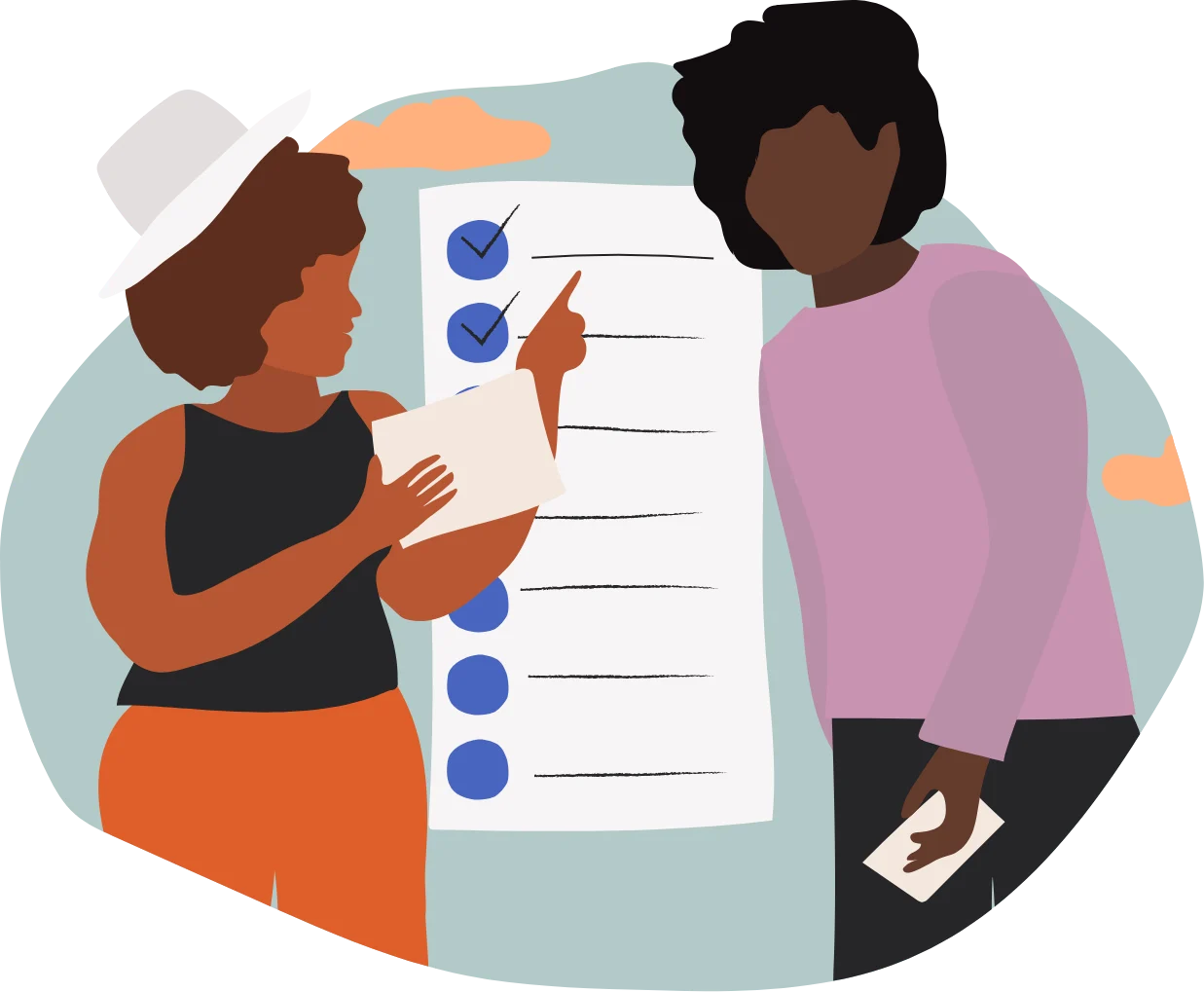

29% of people we surveyed said that financial burdens from the past year have made the wedding they initially had in mind less realistic — and 14% are prioritizing buying a home over having an expensive wedding reception.
To what extent do you agree or disagree with the following?
"I am more excited about having a wedding reception now than I was in 2020."

"Financial burdens from the last year make (or made) a wedding reception less realistic."

How COVID-19 impacted homeownership plans

FROM THE MODERN COMMUNITY
"We got legally married on our original date, and will have the reception in November 2021. We are more excited because many friends and family we have not seen in a year will be coming and for many it will be their first outing!"
81% of people planning a wedding are even more confident in moving forward with their wedding plans due to the vaccine rollout.
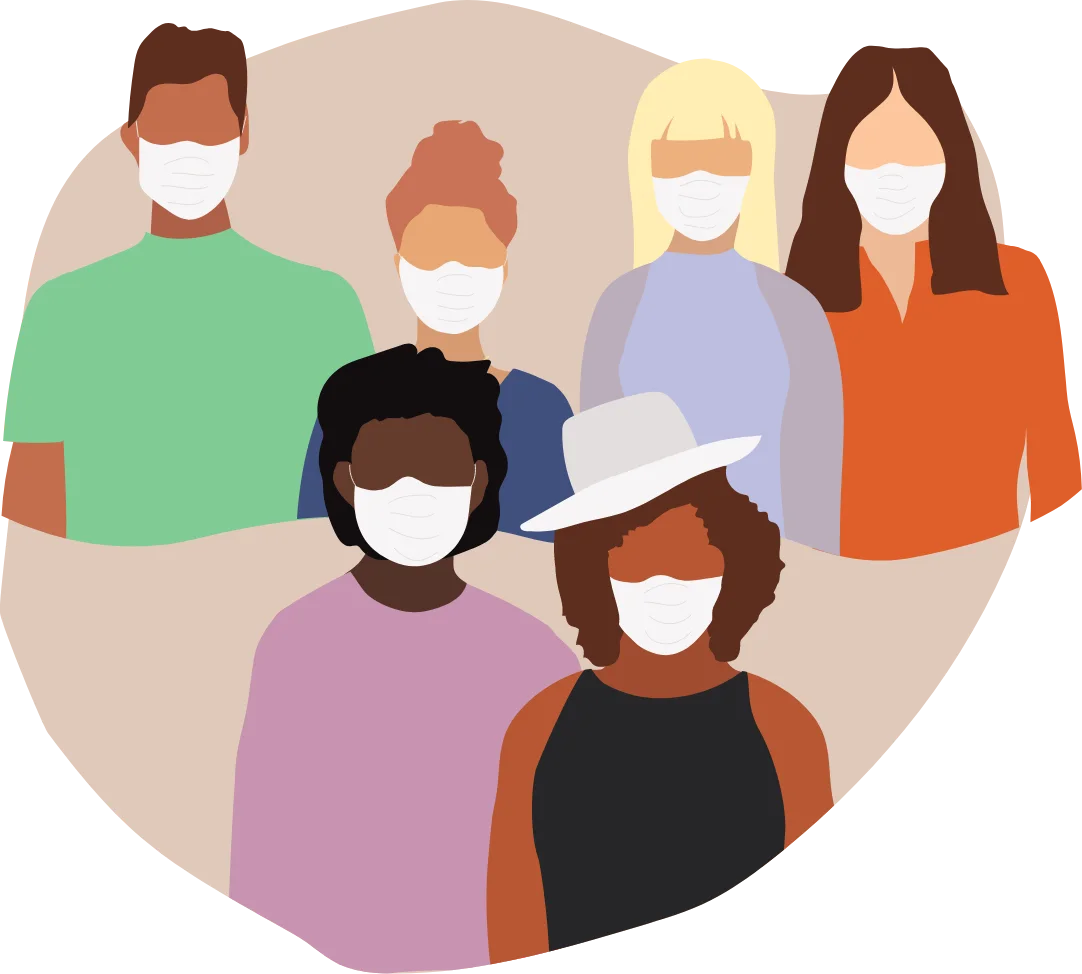
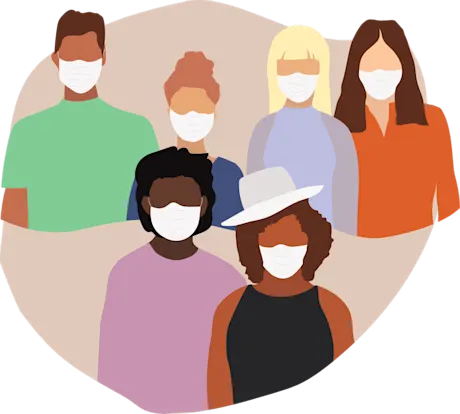
In a follow-up survey to 2,880 people in the Zola community in early April 2021, most people currently planning a wedding said they feel even more confident moving forward with their plans now that the vaccine rollout is moving faster.
Has the vaccine rollout made you feel even more confident in moving forward with your wedding plans?

1 in 3 people want to be vaccinated before becoming parents.
While leading medical organizations say that the vaccines are safe and effective for pregnant people, large-scale clinical trials initially excluded pregnant people. This left many scrambling to figure out timing for kids around the vaccine rollout. As more data emerges on the safety and efficacy of COVID-19 vaccines in pregnancy, the number of pregnant people who choose to get vaccinated is expected to rise.




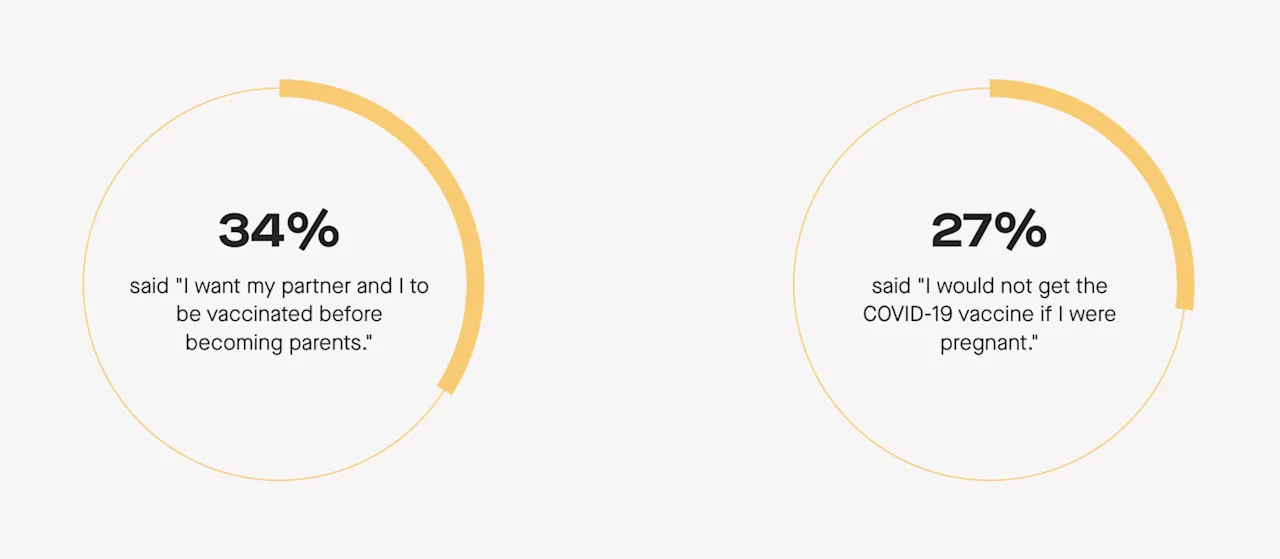
FROM THE MODERN COMMUNITY
"With vaccines becoming widely available, we are moving full force with our wedding and encouraging our guests to get tested or vaccinated before the wedding."
"We were nervous about getting the COVID vaccine because we want to try to start a family in a few months and there are still so many unknowns about the vaccine — but we still decided to get the vaccine."
"After putting our lives on hold for nearly a year prior to COVID-19 due to a familial illness, we decided to go ahead and get married in as safe a fashion as possible. We have agreed, however, that we do not plan to even begin trying for children until after most people have been vaccinated."
"We got legally married on our original wedding date (August 2020) in a small ceremony with our immediate family but postponed the reception to June 2021. We are holding off on trying to have a child until after I am vaccinated — if it weren't for COVID we would have tried right after the wedding."
Turns out, planning for kids during a global pandemic is actually less stressful than planning a wedding.

Wedding plans shifted and pregnancies were put on hold — while this made many anxious, it actually brought couples closer together.


Despite emotions running high, 70% of people said they were on the same page when it came to wedding-related decisions.
45% agreed that "wedding planning during COVID-19 brought me and my partner closer together" and 29% agreed that "fertility and family planning during COVID-19 brought us closer together."
To what extent do you agree or disagree with the following?
"Wedding planning during COVID-19 caused tension and stress in my relationship."

"Wedding planning during COVID-19 brought me and my partner closer together."

"Fertility and family planning during COVID-19 has caused tension and stress in my relationship."

"Fertility and family planning during COVID-19 has brought us closer together."

FROM THE MODERN COMMUNITY
"Ultimately, the stress I was bottling up led to really wonderful conversations with my partner, a new degree of openness, less worry, and a decision to start trying before our rescheduled wedding celebration. If I’m six months pregnant as I walk down the aisle, so be it!"
"My relationship is absolutely stronger — we’ve had to support one another through unemployment, financial concerns, isolation, and working from home. We initially scaled down our wedding to just the party and family, and then had to push completely for the next year. We’re still excited and feel privileged to have the opportunity to have a party at all!"
"When it came to our wedding COVID-19 both ruined dreams and created beautiful memories. We postponed twice, then ended up having a 12-person wedding in August 2020. Making the decision not to have his mom present brought great tension, grief, and sorrow to our journey — but it also brought us closer together, solidifying we are each other's MVP. We are excited to celebrate in October 2021."
"COVID-19 started out as the scariest challenge my husband and I had to face in our relationship. I lost my job and we didn’t see people for many months. However, during the whole process of wedding planning and dealing with COVID-19, we became closer than ever. Our communication skills improved, we found ways to keep our relationship fresh when all we could do was stay at home with each other."
Modern Fertility’s tracker gives you a new way to map out your timeline for kids
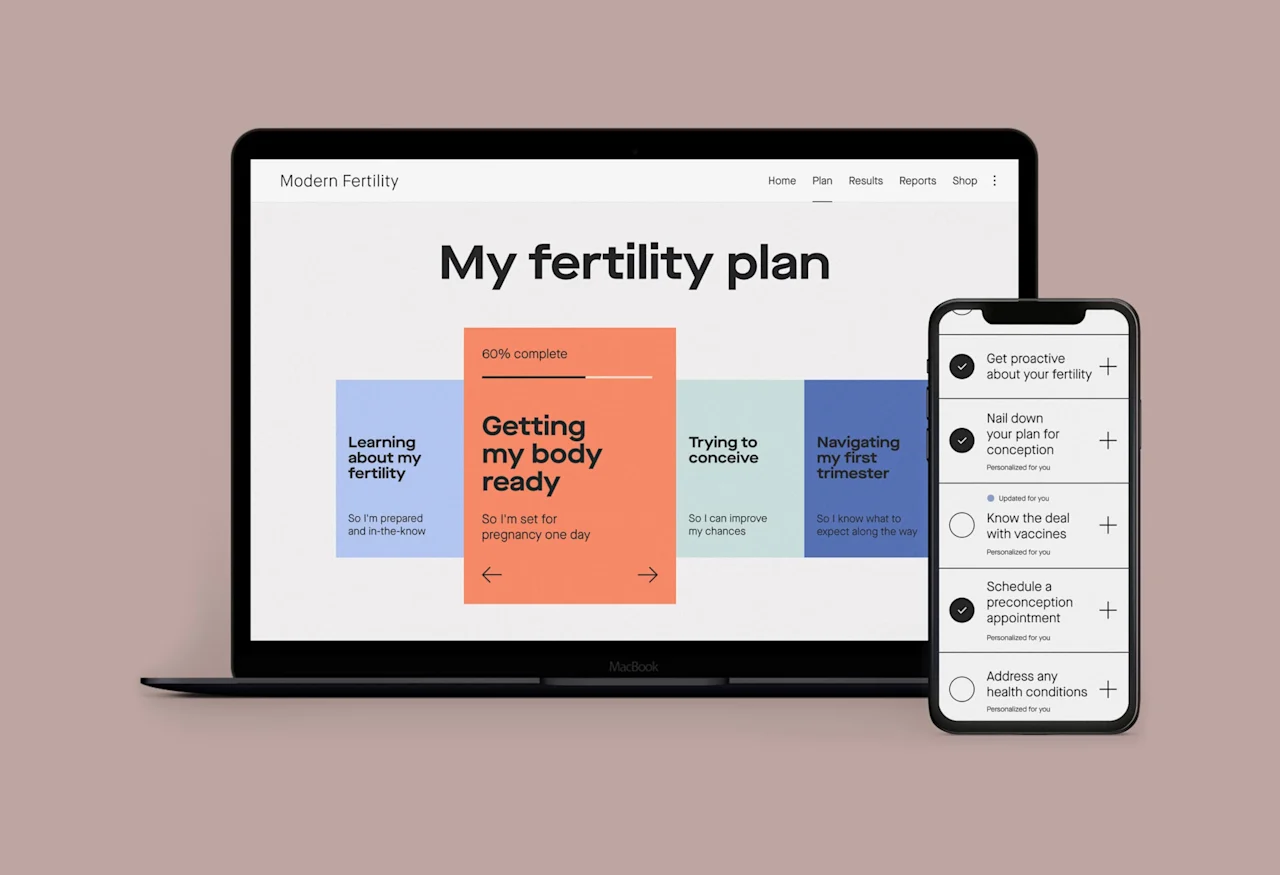
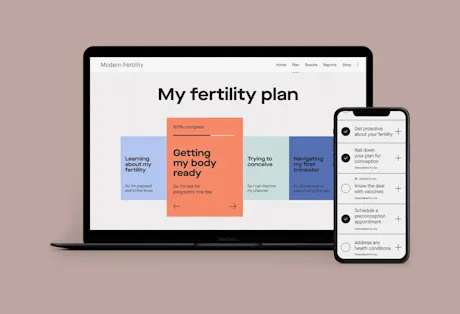
When you're planning ahead for kids, it's hard to know exactly where to start. What's your first move, and what comes next? Modern Fertility's free fertility tracker guides you through it all in one easy-to-navigate place.
You'll get 100+ clinically backed recs, personalized based on age, cycle regularity, birth control, and other health factors. Plus, doctor appointment guides and real-world data around chances of conception and time to pregnancy.


We make personalized fertility information and support more accessible for people with ovaries. Now part of Ro, we offer fertility essentials — including at-home tests and tools — that help you get proactive about your reproductive health.


However and whenever couples choose to get married, Zola makes their wedding happen. Over 1 million couples have planned their weddings with Zola’s free suite of helpful tools. From booking wedding vendors to creating a free wedding website, ordering save the dates, and building a dream wedding registry, Zola helps couples crush their to-dos all in one place.
Methodology
This trend report was conducted in February 2021 as a cross-sectional survey of 1,333 people with ovaries to examine the experiences that they have related to COVID-19, wedding planning, and fertility and family planning. We conducted a follow-up survey to 2,880 people in the Zola community in early April 2021 asking about the impact of the COVID-19 vaccine on their wedding plans.
A cross-sectional survey means that we gathered the data at a single point in time and did not attempt to change or alter their beliefs in any way when gathering the data. What can (and can’t) this type of study tell us? A cross-sectional survey is a great way to learn about the number of people with ovaries who have made different wedding and fertility decisions. This type of study can’t tell us anything about causation.
Demographics
A total of 1,333 eligible participants completed the trend report survey
Age range: 20-50 Mean age: 30.16, SD = 4.74
Gender identity | |
|---|---|
Cisgender woman | |
Transgender woman | |
Cisgender man | |
Non-binary | |
Genderqueer, gender fluid, or gender non-conforming | |
Intersex | |
Questioning | |
Prefer not to say |
Note: Participants were able to select more than one gender identity option. The table indicates the total number of participants that indicated each gender identity. The total will add up to more than the total number of participants because they could select more than one.
Racial/ethnic background | |
|---|---|
American Indian or Alaska Native | |
Asian | |
Black or African American | |
Native Hawaiian or Other Pacific Islander | |
Hispanic or Latinx | |
White | |
Middle Eastern | |
Prefer not to say |
Note: Participants were able to select more than one racial/ethnic background option. The table indicates the total number of participants that indicated each race. The total will add up to more than the total number of participants because they could select more than one.
Sexual orientation | |
|---|---|
Heterosexual or straight | |
LGBTQ+ | |
Prefer not to say |
Note: Participants were able to select more than one sexual orientation option. The table indicates the total number of participants that indicated each sexual orientation. The total will add up to more than the total number of participants because they could select more than one.
What is your current household annual income? | |
|---|---|
Less than $25,000 | |
$25,000 to $34,999 | |
$35,000 to $49,000 | |
$50,000 to $74,999 | |
$75,000 to $99,999 | |
$100,000 to $149,999 | |
$150,000 to $199,999 | |
$200,000 or more |
What is your current relationship status? | |
|---|---|
Single, never married | |
Single, divorced | |
Single, widowed | |
In a committed, monogamous relationship or partnership | |
Engaged | |
Married | |
Prefer not to say |





